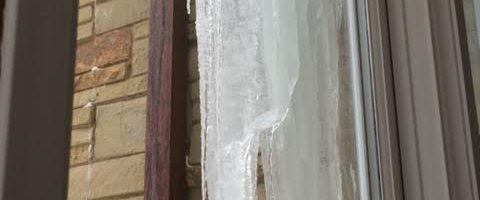It was a magical summer - exotic, and romantic, and educational too! I will never forget That Summer.
Read More
Summer of ’66


It was a magical summer - exotic, and romantic, and educational too! I will never forget That Summer.
Read More

Thankfully, one summer 52 years ago my husband I made an impractical and probably irresponsible choice. It turned out to be one of the best decisions of our lives.
Read More

The winter of 2014-15 was the snowiest we remember in the Boston area with large storm followed by large storm. Then the sun came out, causing some melting of the snow on roof tops, giving way to terrible ice dams from the build up of snow on roofs. We learned the hard way how damaging those could be.
Storm Juno roared in on January 27, 2015. We hung out inside – no need to go anywhere – and I took photos of the snow accumulation outside the window.
The plows were running out of places to shovel the snow, walk-ways were narrow. Our home was buried by the time the sun came out. We have a large, one story house with a complicated roof line; lots of places for snow to get caught and ice dams to form.
By February 12, we had water leaking into all the public rooms of the house, as well as the two west-facing bedrooms (that includes the primary bedroom). But most severe were in the living room, dining room and paneled library, where water leaked in from the ceiling, along the tops of the window frames and in the dining room, behind one wall.
Dan got out every pan, bucket, container and towel in the house. I ran the dryer constantly, trying to keep dry towels for the onslaught of water (it seeped discolored water onto our carpets and curtains as well). Everything in our house is beige.
There was no sleep, we were frantic. We called our contractor who got us the name of someone who eventually came to shovel the huge amount of snow from the roof. That was the only way to stop the melting/dripping cycle forming the ice dams. We signed a long-term contract with him in the event that such an issue happened again. Worth it. The dripping ebbed.
On the fourth day of this catastrophe, we were due to fly to London to visit David. He had moved there the first of the year to begin working for Google DeepMind; he lived in a company-provided two bedroom apartment until the end of that month. We didn’t want to miss this opportunity, but couldn’t leave a leaking mess behind.
I hired my Brazilian cleaning lady to come check on the house daily and send reports to us. She showed me the “WhatsApp” app, through which she could sent photos and video reports (free and secure) about the house. Between that and seeing that the inside leaking had stopped, we took off for London; barely. The roof shoveler showed up hours before we left for the airport. We would deal with the rest of the cleanup when we got home. At least everything was stable and we were in touch with our contractor and the insurance adjustor, for this was an insurance claim too.
Upon our return, we filed the claim, had our contractor work through the estimates with our insurance provider and got estimates to clean and repair everything – get the stains out of the carpet and curtains, cleaned the wood paneling, re-plaster the living room ceiling, fix the hole in the dining room, lots of painting.
Then we set about curing the problem. We put heating elements in all the gutters, controlled through an app on our phones (we could be anywhere in the world, see that a huge storm is raging in Newton and turn on those heating elements). That way, the snow wouldn’t have a chance to freeze in the downspouts again.
But of most importance, we did a major overhaul of our basement sump pumps and drainage systems, since we’d had several bad flooding incidents in the family room over the years.
A professional team came in and stripped out the whole room, even though it is finished to the same high quality level as the rest of the house.
They discovered a small crack in the foundation, which they plugged, found there was a check valve in the wall to our sump pump that was broken! Hence, it didn’t carry water out of the house and we didn’t know about it. Of course that was remedied. They added a second sump pump. But of most importance, they traced the outside line and discovered it was clogged, so the water backed up. They cleared that line as well as looking at the downspout in that corner (where the HUGE ice dam by the living room had formed – the Featured photo). They routed the downspout further away from the house, so the water wouldn’t puddle right by the window well.
We also added a generator. It doesn’t do much good to have great sump pumps and de-humidifiers if there is a hurricane and one loses power. Vapor barrier was wrapped along the walls. Now we feel the room is tight. And we haven’t had a water problem since. The generator and basement system get serviced annually so we know they are all in working order. With more extreme weather, we are taking no chances.

I wasn't thrilled at the idea of a concert by a country singer, and how good could someone be who was singing at a county fair?
Read More